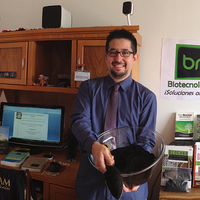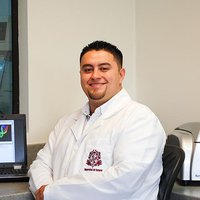Biotechnology & medicine
Dena Marrinucci
Her startup bets it can track cancer from an early stage, without any biopsies.

Latin America
Ramón Bacre
His biotech fertilizer fights climate change

Europe
Thibault Helleputte
Data-driven personalized anticipative medicine

Latin America
Juan Carlos Guaqueta
Water purification system to treat worm infested sewage for use in irrigation and fertilization

Latin America
Juan Esteban Gallo
Designing bioinformatics tools to provide a cheaper, faster way of identifying pathogens.
